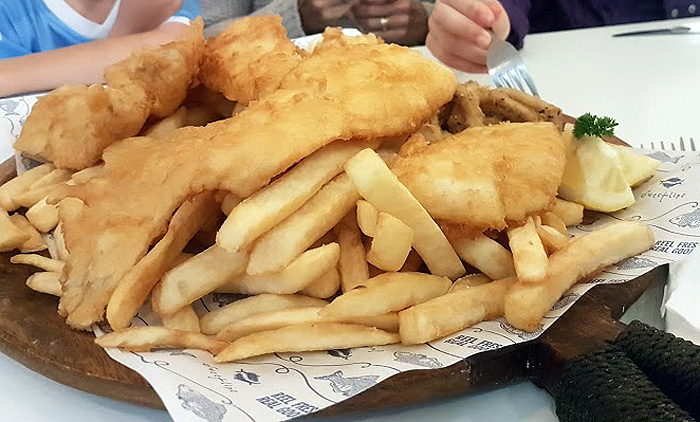This is a guide for athletes traveling to England, what to expect and how to be prepared.
For athletes traveling around the world, there are challenges not only finding food that you like, but finding healthy food that can meet your requirements as an athlete. For someone traveling to a new country and culture, this may seem overwhelming. Those from anywhere but England may find it hard to find the foods they are familiar with from home. Sometimes it is just knowing where to look. This article is to help guide someone who is planning to travel to England in their chosen sport.
General English Food Guide
Eating Establishments
There is a broad range of eating places from fancy restaurants to basic corner cafes and fast-food restaurants, with everything in between.
Self-catering
Self-catering is relatively easy to do in England. There are lots of mini-marts and supermarkets which stock a large range of foods. It is usually cheaper to self-cater, and for planning purposes it can be better for you as you will know what you are getting. For athletes with food allergies or intolerances this is always the best option. Most accommodation will not have facilities to enable you to cook your own meals.
England Food Guide For Athletes
Initially the foods on offer may not be appealing to you. They are often heavy hot meals: high in fat, high in protein, low in carbohydrate. Don’t be daunted as a lot of foods you should recognise. The food you come across will be similar to USA, Canadian and Australian cuisines.
The following are some characteristics of English meals:
Breakfast: 7-9am
- Typical English b/fast; eggs, bacon, sausages, fried bread, mushrooms, baked beans with a cup of coffee/tea.
- Usual; Cereal, toast, juice, coffee.
Lunch: 12 - 2pm
- Sandwich, crisps, fruit, drink
Dinner: 6 - 8pm
- Meat and 2 veg, with potatoes
 fish and chips is a common takeaway food in England
fish and chips is a common takeaway food in EnglandTakeaway (takeout) foods are very popular!
These foods will make up a greater part of the diet than usual. Takeaway is quick and easy and best for after a late game or if you have limited cooking facilities. Restaurants are a more social occasion. Keep in mind your carbohydrate and nutrition goals.
- Indian, Italian, Chinese, Greek, Thai etc.
- Fish & Chips
- Fast food: McDonalds, KFC, Pizza hut etc.
Common Meals
- Potatoes are very common
- Sandwiches are popular ("BLT" buttie, Egg mayo and watercress, Tuna/Prawn/Chicken and mayo, Steak Sandwich, Cheese and ham toastie)
- Ploughman's lunch – typical pub option (crusty bread, butter, wedge of cheese (stilton/cheddar) pickled onion with green salad)
- Shepherds Pie
- Fish & Chips
- Roast beef & Yorkshire pudding
- Hotpot (Beef/pork/chick/sausages stew)
- Roast meat and vegetables
- Chicken Kiev (breast with garlic butter inside)
- Steak & Kidney pie
- Bangers & Mash
- Cornish pastry
- Scrambled eggs
- Cauliflower cheese
Things you may need to bring from home?
Gels, supplements, a drink bottle, medications
Related Pages
- Sports Nutrition for the Traveling Athlete
- Travel Nutrition Guide for Athletes
- list of tips for travel – mostly for on the plane
- Olympic Games Nutrition in London 2012
- Food Safety — When traveling, foods and water can be a source of contamination and have the potential to make you sick.
- Guide to watching what you eat while traveling.
- If you are traveling to a hot climate, hydration also becomes a very important issue.
- Fitness and Traveling
- Tips For Healthy Restaurant Eating — while traveling you may need to eat at restaurants.
- For information about foods available around the world, read Clare Wood's travel food blog.
- About Sport in England


 Current Events
Current Events